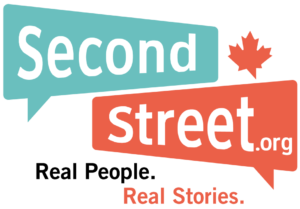SUN NEWS COLUMN: Government has been helping people by easing regulations

Across Canada many great examples are emerging of governments helping people deal with the COVID-19 pandemic by – wait for it – getting out of the way.
I’m referring to cases whereby governments have relaxed their rules, regulations and restrictions to help people, businesses and organizations exchange various goods and services in a timely and less obstructive way.
While COVID-19 has caused immense harm, this phenomenon, at least, is a morsel of good news and will hopefully prove instructive beyond the pandemic.
For example, on Vancouver Island, a small distillery called Wayward Distillery was one of the first in B.C. to be allowed by the provincial government to use its facility to produce hand sanitizer once stores began to run out.
Not only can consumers purchase the product through the company’s website, the company has been giving away free bottles, including to members of the RCMP, firefighters and health care workers. Thumbs up to the B.C. government and Wayward Distillery.
Speaking of alcohol, B.C., Alberta, Saskatchewan, Manitoba and Ontario, have allowed restaurants to sell alcohol with their delivery orders. Not only is this convenient for customers, it helps restaurants, at least a little bit, during an economically devastating time.
Drivers in B.C. can also now renew their driver’s licenses over the phone and by email. Imagine that, government services online – offering convenience and cost savings – who knew such a thing was possible?
In B.C., pharmacists now have more leeway to provide patients with medication refills without the patient having to visit a doctor for an updated prescription; helping people reduce social contact while saving doctors time. Similarly, several provinces have also started to allow doctors to conduct patient appointments using videoconferencing tools.
Governments have been fast-tracking licensing regulations so that retired health care workers, and soon-to-be medical graduates, can pitch in and work in the health care system without delay. At the federal level, the Minister of Health now has special powers to fast-track approval of medical equipment to fight COVID-19.
Even the court system has evolved – in Ontario, the courts have been accepting digital documents instead of printed copies.
To be sure, some regulations are appropriate, but Canada has gone overboard with outdated regulations and red tape – long before any pandemic. The Canadian Federation of Independent Business has estimated that unnecessary government regulations cost small businesses alone more than $10 billion each year. There are certainly other costs to society that haven’t been quantified. For example, the time out of someone’s day to visit a government office to drop something off or pay for a license.
One solution to address this problem is to have governments – at all three levels – establish permanent red tape review committees.
It’s not uncommon to see governments strike an occasional red tape or regulatory review, solicit a lot of great ideas from the public and businesses and maybe even implement some of them. But government has a way of eroding those gains during the years in between such reviews.
By making such reviews an ongoing process, governments could make sure their restrictions are necessary and responsive to the public’s needs – something that clearly wasn’t the case just a few weeks ago.
Colin Craig is the President of SecondStreet.org, a new Canadian think tank.
This column was originally published in the April 4, 2020 edition of the Toronto Sun, Winnipeg Sun, Edmonton Sun and Calgary Sun.
Other Canadians Share Similar Experiences:
Don and Jackie, Winnipeg
Jerry and Becky, Calgary
Troy and Erika, Victoria
Jim Jones, Toronto
You can help us continue to research and tell stories about this issue by making a donation
or sharing this content with your friends. Be sure to sign up for our updates too!


